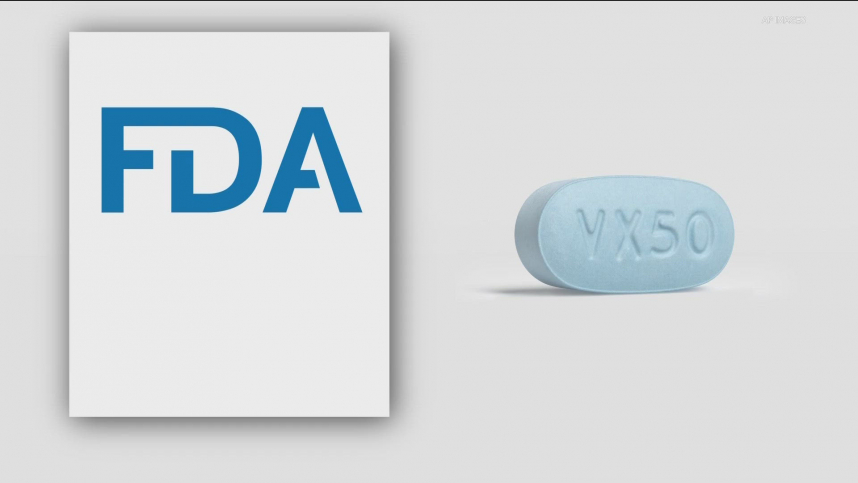
The US Food and Drug Administration signed off Thursday on the first new type of pain reliever approved in over two decades.
The drug, suzetrigine, is a 50-milligram prescription pill that’s taken every 12 hours after a larger starter dose. It will be sold under the brand name Journavx.
“A new non-opioid analgesic therapeutic class for acute pain offers an opportunity to mitigate certain risks associated with using an opioid for pain and provides patients with another treatment option,” said Dr. Jacqueline Corrigan-Curay, acting director of the FDA’s Center for Drug Evaluation, and Research.
“This action and the agency’s designations to expedite the drug’s development and review underscore FDA’s commitment to approving safe and effective alternatives to opioids for pain management.”
Government surveys show that analgesics, or medications that control pain, are the most commonly prescribed type of drug in hospitals.
About 80 million Americans fill prescriptions each year for medications to treat new instances of moderate to severe pain, according to a study by Vertex Pharmaceuticals, the company that developed the new drug; about half those prescriptions are written for opioid medications, which can lead to dependence and addiction.
Suzetrigine is the first new painkiller approved in the US since Celebrex, a type of nonsteroidal anti-inflammatory drug called a Cox-2 inhibitor, which was approved in 1998.
Multiple parts of the body are involved in the sensation of pain, explains Dr. Sergio Bergese, an anesthesiologist at Stony Brook University’s Renaissance School of Medicine. Nerve cells carry an electrical signal from the site of tissue damage up to the brain, which perceives the signal as pain.
Unlike opioid medications, which dull the sensation of pain in the brain, suzetrigine works by preventing pain-signaling nerves around the body from firing in the first place.
“This drug, what it is doing is interrupting that path, so even though the tissue injury exists, the brain doesn’t know,” Bergese said.
Crucially, suzetrigine creates no euphoria or high like opioids sometimes can, so doctors believe there’s no potential for it to create addiction or dependence in people who use it.